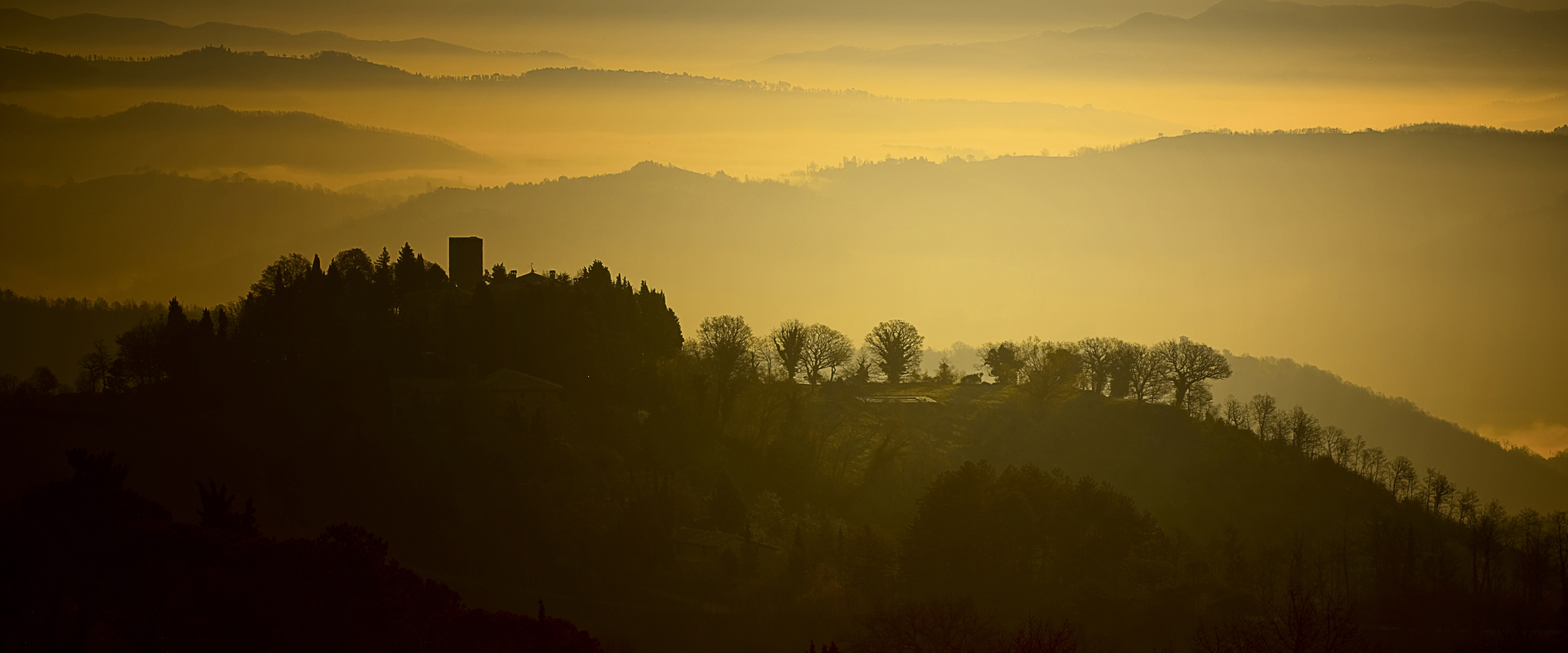Chef Walter Passeri of Castello di Petroia: Philosophy in the kitchen (part II)
2017-02-27
Our chat with chef
Walter Passeri of the Relais
Castello di Petroia, an ancient 13th century castle in the hills of Gubbio, near Perugia, continues. After talking about the historic dishes he serves in his restaurant, chef Passeri tells us about the values underlying his profession.
What does cooking mean to you, chef Passeri?
“
I have two philosophies: a creative one and a historic one. On one hand, I don’t like to copy other people’s creations, but to come up with my own. I draw inspiration from what other chefs do, but whenever I create a dish, I add a personal touch of my own. On the other hand, I study historic Umbrian cuisine and adapt it to the times we live in. I come up with new versions of historic dishes, updating their presentation and calorie content, reducing fat content to make them more suitable for today’s sedentary lifestyle.”
But your cooking is all about substance, rather than form.
“
My dishes are never just so-so; every one of them has a strong character of its own. Ah, and I also have a third philosophy: everything must be homemade. I myself make the bread, the butter, the pastries and desserts. I buy the ingredients every morning at the market, and they are all locally produced and top quality.”
How is one of your dishes created?
“
The first step in creating a successful dish is the ingredients. Then there’s the chef’s touch. I sometimes draw inspiration from a recipe I have tasted, a voyage, or a trip to the market. A light bulb comes on, and that’s how the process of creation begins. But the results will not necessarily be a success, when I actually try to make the dish. It may come out unbalanced. In other cases, it works out well right away, or else it works but requires a few technical adjustments. Sometimes eating two things together can inspire a new idea. For example, I used to eat Cannara red onion jam with cheese, then I started eating it with chicken livers, and now I offer this combination on my menu.”
What qualities do you believe you have, as a chef?
“
First of all, I wouldn’t trade my job for any other! I’m sure all the love I put into my job appears in the dish and is readily perceived by those who eat it. The message of my dishes stays with my clients, even years later. As a chef, I think I have a balanced hand: I always seek harmony when preparing a dish.”
How do you define an “ethical food”?
”A local food, something that worked in the past and still works today, in an updated version. It’s a way of using local produce and honouring tradition.”
What is your attitude to tradition and innovation?
“
I like to read historic texts, and I always try to read the recipes between the lines, and then use my imagination to reconstruct the dishes described. Innovation is a matter of curiosity, and I am a curious person; I try not to get set in my ways in the kitchen. It’s important to get to know what’s new, assess it and make your decisions.”
Can food nourish the soul?
“
Yes, it doesn’t nourish only the body. It allows us to experience emotions, and emotions are spiritual.£<
Mariagrazia Villa
